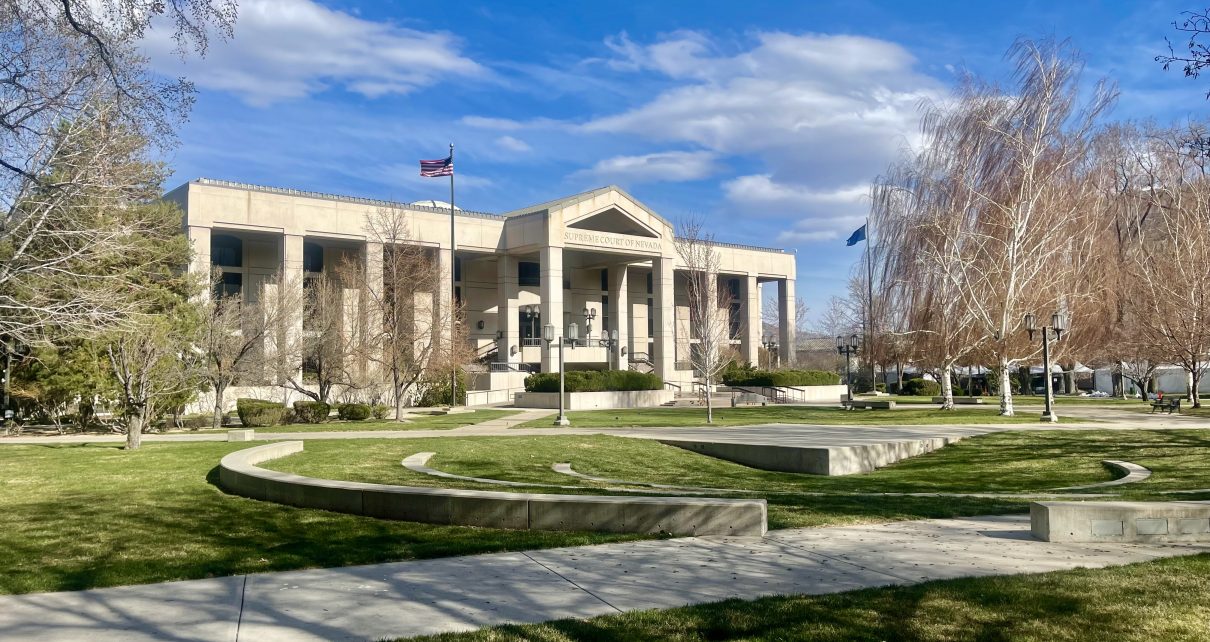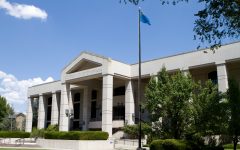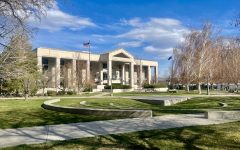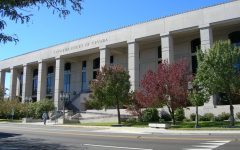
Nevada Supreme Court (Photo: The Nevada Globe Editor for The Nevada Globe)
NV Supremes Narrowly Rule State Government Employees Cannot Serve As State Legislators
In dissent, Herndon highlights the contradiction in the majority’s opinion
By Megan Barth, November 1, 2024 1:27 pm
Late yesterday, the Nevada Supreme Court narrowly ruled that state government employees are no longer allowed to serve as state legislators. (see below) The ruling comes in response to Nevada Policy’s Separation of Powers lawsuit, which was first filed in July 2020. The lawsuit is Nevada Policy’s third—and now final—attempt to enforce Nevada’s constitutional Separation of Powers doctrine. Nevada Policy brought similar challenges back in 2011 and 2017.
In a press release, Nevada Policy notes:
The Nevada Constitution has long forbidden legislators from “exercising any functions” related to the other two branches of government. Yet, in plain violation of this mandate, government employees have routinely served as state legislators. This practice has undermined the principle of representative government and led to a legislature that was more responsive to the needs of government, rather than the people. In practice, this has led to things like higher taxes, reduced educational options for Nevada children, and a lack of transparency and accountability in government.
Following Nevada Policy’s unanimous Nevada Supreme Court victory in April 2022, which allowed all citizens to bring constitutional separation of powers challenges without having to satisfy the traditional standing requirements, Nevada Policy filed this lawsuit against state lawmakers for violating the state constitution by serving in the legislature as government employees.
After their victory in April, previous defendants State Senators Melanie Scheible and Nicole Cannizzaro resigned their respective positions as county prosecutors. Their resignation influenced the majority’s opinion.
In dissent, Justice Douglas Herndon stressed that the case should have been remanded back to the district court for further deposition and discovery of facts, and points out a contradiction in the majority’s opinion:
We must be cognizant that the parties have yet to engage in discovery or identify evidence tending to prove or disprove NPRI’s claims. The majority does not mention the pleading standards in its analysis, but its conclusion implies it is impossible for NPRI to state a claim against the individual respondents. And it does not base that determination on the text of the constitution or upon record evidence as to the functions exercised by any respondent.
I also find problematic the majority’s internal inconsistency, as it holds that “[1]ocal government employees are distinguishable from employees of a state government department for separation-of-powers purposes,” but leaves open the possibility of suit against county prosecutors, who are clearly local government employees. If a case may be tried specifically against county prosecutors, why would the same principle not apply to other county employees? The proper analysis would focus on the functions exercised by each local respondent, but the same flaws arising in the majority’s analysis of Neal appear in its treatment of the local respondents. The majority finds it impossible that any local respondent violates the separation of powers not based on evidence pertaining to those respondents, but on an extra-jurisdictional look to California’s since-amended constitution and various other states’ court decisions. And again, the majority does not mention the text of Nevada’s constitution except in comparison to the first draft of California’s. We should adhere to 6 our steadfast principle that where constitutional text is unambiguous, we need not address legislative history or secondary sources of authority.
While Nevada Policy argued that the text, history, and purpose of Nevada’s Separation of Powers doctrine bars all government employees—both state and local—from serving as state legislators, the 4-3 ruling held that only state government employees are barred from simultaneously serving as state legislators. The local government employees named as defendants in the suit included Democratic members of the State Assembly Brittney Miller and Selena Torres, and Democratic State Senators Dina Neal and James Ohrenschall. As the defendants are local government employees, they will remain in t
“The court went out of its way to note that it was not approving the practice of allowing prosecutors to simultaneously serve as state legislators, notwithstanding the fact that county prosecutors work for a local rather than state agency,” Tsarpalas said. “I, for one, would not want to test the court’s commitment to safeguarding Nevada’s Separation of Powers doctrine, which the court rightly described as perhaps the most vital constitutional principle we have.”
“For over 100 years, government employees have defied the plain text of Nevada’s constitutional separation of powers doctrine by impermissibly serving as state legislators,” said Nevada Policy President John Tsarpalas. “Today, that comes to an end.”
“Ensuring that our system of government conforms to the confines of the Nevada Constitution is at the heart of what Nevada Policy believes in and fights for,” Tsarpalas added. “The Framers rightly understood the corrupting influence that would result if government agencies were free to hire or otherwise employ members of the state legislature. It is essential that the Nevada Legislature represent and reflect the will of the people, and not the government. This ruling is a monumental win for all those who believe in a constitutional and representative system of government.”
Nevada-Policy-Wins-State-Govt-Workers-Barred-from-Legislature- Illegal Alien Identified As Wrong-Way Driver in Fatal Crash That Killed LVMPD Officer - December 23, 2024
- Senator Rosen Joins Letter Raising Concerns About Pete Hegseth’s Nomination - December 20, 2024
- NV SOS Launches Four Investigations Into 2024 Election Violations - December 20, 2024




